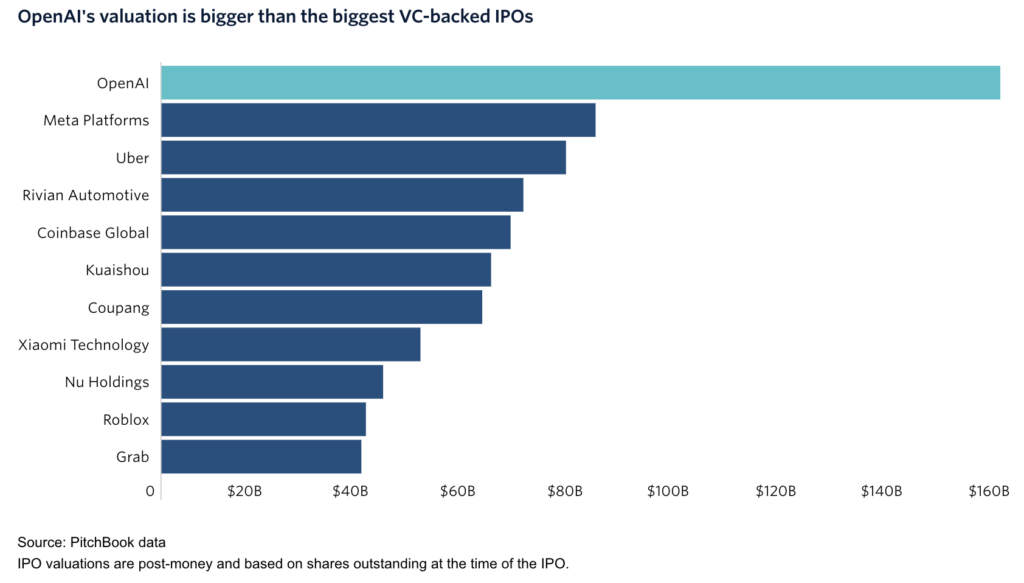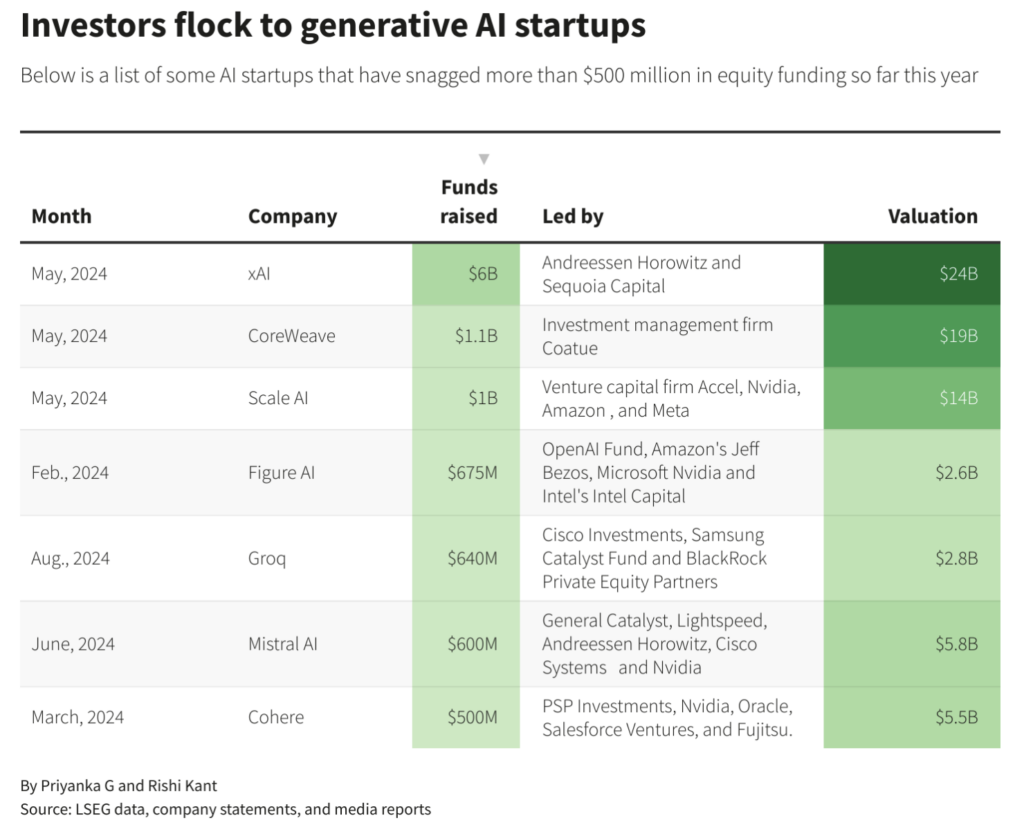The announcement of a major funding round in the tech world is often accompanied by a clichéd photo of a group of men in light blue shirts and the occasional rebel in a black t-shirt, trying to look tough into the camera. OpenAI, in announcing its new funding round of no less than $6.6 billion, out of a $157 billion valuation, posted an abstract image without a source; probably because there is no management left except CEO Sam Altman himself.
The text was also dry by Altman standards: "This funding allows us to strengthen our leadership in AI research, increase our computing power and build tools that help people solve complex problems."
"The dawn, blah blah blah chocolate custard"
This is less prosaic than the Bouquet Series lyrics Altman recently posted on his own blog:
"We must act wisely, but with conviction. The dawn of the Intelligence Age is a profound development with very complex and extremely risky challenges. It will not be an entirely positive story, but the benefits are so enormous that we owe it to ourselves, and to the future, to figure out how to navigate the risks that lie ahead."
This almost seems like one from the oeuvre of the unsurpassed Kees van Kooten: "but enough about myself, what do you think of my hair?" Because here Altman is unabashedly trying to attach half of his own company name to a term that is supposed to mark the period after our current post-industrial era. It is, of course, rather the dawn of the TikTok era, but TikTok is not as good at PR.
OpenAI now bronze, after SpaceX and ByteDance (TikTok)
The funding round increases the pressure on Altman to live up to this high price tag, normally via an IPO. OpenAI is now worth far more than any other venture-backed company ever before at the time of their IPO, including Meta, Uber, Rivian, and Coinbase, according to a PitchBook analysis.

OpenAI is now the third most valuable venture-backed company in the world. Only Elon Musk's SpaceX, valued at $180 billion, and ByteDance, the owner of TikTok valued at $220 billion, are worth more.
Is there any competition for OpenAI?
To put it in Dutch perspective: OpenAI is worth five times as much as Philips, as much as Unilever and still only 20% less than Shell. OpenAI's competitors must look at the new funding with horror. xAI, founded by Musk, raised more than $6 billion earlier this year, but with a valuation of "only" $24 billion. OpenAI's nearest competitor, Anthropic, was valued at $19.35 billion as recently as January.
A few days ago there was brief enthusiasm in the market when Nvidia, nota bene the party that is going to earn the most from OpenAI's new funding because it supplies all the hardware under the hood of ChatGPT, introduced a proprietary Large Language Model that seemed open source, called NVLM. Unfortunately, the technology is not allowed to be used in commercial applications, making Google with Gemini the only real remaining competitor to OpenAI. Or Anthropic needs to find funders who dare to throw billions at it.
$4 billion credit facility for OpenAI
Early investors in OpenAI are obviously in jubilant spirits, including the legendary Vinod Khosla, who in this interview with Bloomberg almost even seemed to be caught smiling. Khosla: "It is the most important tool we have ever had in human history to create abundance and realize a fairer, more equitable, prosperous society."
Khosla also reported that he has used ChatGPT for more mundane tasks - from quickly learning complex material to designing his garden. The latter is especially impressive, as Khosla's garden has a mile-long beach that has been the subject of lawsuits for years.
On Thursday, it emerged that in addition to its $6.6 billion investment round, OpenAI also managed to secure a $4 billion credit facility from a number of banks. With over $10 billion, the company can go on for a while, although the question remains how far this pole reaches for the company that loses millions every day.
Mozart of mathematics
Anyone who throws around bombastic cries about AI being the savior of humanity brings criticism upon themselves. These range from substantive criticism of the quality of the technology developed by OpenAI, to the way Altman runs the company.
More and more is leaking out about how OpenAI is rushing, especially under pressure from competition from Google, to release products that are far from ready and insufficiently tested. Even before Mira Murati's unexpected departure from OpenAI, staff complained that the o1 model was released too early.
The Atlantic advocates putting aside Altman's turgid rhetoric and looking primarily at what OpenAI's products are currently capable of:
"Altman insists that the deep-learning technology that powers ChatGPT can in principle solve any problem, at any scale, as long as it has sufficient energy, computing power and data. However, many computer scientists are skeptical of this claim and argue that several more major scientific breakthroughs are needed before we reach artificial general intelligence."
Terence Tao, a mathematics professor at UCLA, is "a real-life superintelligence, the Mozart of Mathematics," according to The Atlantic. Tao has won numerous awards, including the equivalent of a Nobel Prize in mathematics, and analyzed the performance of the OpenAI-hyped o1.
Tao's conclusions are not positive for o1's math ability and even led Tao to apologize for comparing o1's performance to that of a doctoral student.
A broader analysis appeared In the book "AI Snake Oil: What Artificial Intelligence Can Do, What It Can't, and How You Can Recognize the Difference. "In it, the authors explain why organizations are falling into the trap of AI snake oil (worthless solutions), why AI can't fix social media, why AI is not an existential threat, and why we should be much more concerned about what people will do with AI than about what AI would do on its own. I haven't read the book but the reviews are positive.
Investors lining up for AI companies
Despite all the criticism, investors are eager to invest billions in AI companies.

Reuters made this overview of funding in 2024. Adding up to over $10 billion, it especially underscores how well-funded OpenAI is, which has such an amount at its disposal due to the investment round and the banks' own credit facility.